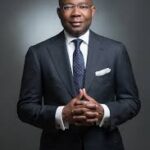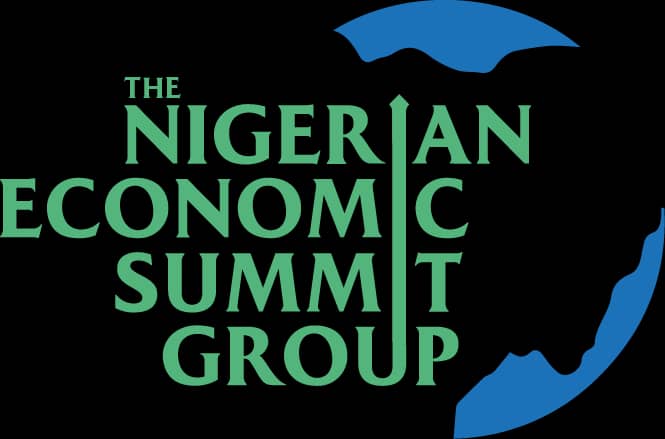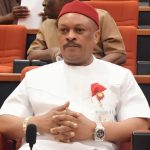The Health Policy Commission of the Nigerian Economic Summit Group (NESG), has brainstormed and sought ways of attracting funding to the Nigeria’s health sector to ensure effective healthcare delivery services in the country.
Speaking at a webinar event, the Steering Committee Member of the NESG Health Policy Commission(HPC), Dr. Tinuola Akinbolagbe, explained that the discourse of the event would be based on innovative measures and rising healthcare demands which are geared towards identifying homegrown solutions that encourage ownership and promotion of sustainability.
Akinbolagbe revealed that he would discuss significant business opportunities and financing opportunities available as well as propose ways to mitigate challenges faced regarding healthcare financing.
While setting the context for the discussions, Dr Obinna Nnewuihe, member of NESG’s HPC and co-author of the paper, stated that Healthcare is highly complex and at the heart of healthcare and thriving outcomes is the availability of sufficient funding for Healthcare.
He noted that some countries, such as the United Kingdom, make use of tax-based finance mechanisms while some others, such as the USA, make use of private insurance mechanisms and that the paper aims to identify the challenges and opportunities in financing healthcare and the steps to go from challenges to leveraging such opportunities.
He said: “Lots of opportunities exist in healthcare considering the strong young and growing population.
“There is consistent demand in Nigeria, but the sector is highly regulated worldwide, and the government has a huge role to play from access to capital and regulation that ensures the sector’s development.”
Also speaking,the Lead, Health as a Business Thematic Group of the Health Policy Commission of the NESG, Dr Ola Brown, said the healthcare industry globally has attracted more investors regardless of location.
She noted that healthcare is counter-cyclical, as the sector remains stable during economic downturns as people prioritise health and continually resist economic shock and inflation, thus offering stability that potentially attracts investors.
Brown said the opportunities inherent in the healthcare sector, including a growing population, expanding middle class and rising demand for Healthcare.
“Africa’s rapid internet and mobile growth, among the world’s fastest, present investment opportunities.
“While challenges like limited infrastructure and healthcare access exist, they also create avenues for attractive returns on investment,” she explained.
She stated that the AfCFTA would also increase intra-regional trade, increase local medicine production and employment opportunities.
She also noted the types of healthcare financing available, including debt financing such as bank loans, development finance institutions (DFI’s), trade credits, bonds and microfinance institutions, equity financing and grant funding and the challenges the sector faces, including a fragmented healthcare industry, limited research and development, limited expertise and talent and a lack of medical manufacturing hubs.
During the panel session, Dr Richardson Ajayi, an HPC steering committee member, said there is a need to focus on an environment that attracts favourable investment.
He noted that the forces affecting profitability work against the industry as there is insufficient money driving healthcare growth.
Ajayi reiterated that 70 per cent of healthcare provision is from the private sector, signifying the need for the space to be better organised through regulations and scalability, ensuring that healthcare users have an effective means to pay for services.
In his remarks, Dr Uyi Ima-Edomwonyi, HPC member and co-author of the paper, said that Nigeria can harness the opportunities in the digital health space through intelligent investments that target pools of hospitals where people with low incomes can assess services digitally.
He stressed the need for the government to grant opportunities to health tech practitioners and allow them to aggregate with health communities.
A member of the Health Policy Commission, Dr Olayemi Dawodu, said that research and development in Nigeria’s healthcare sector need to be better coordinated.
Dawodu reiterated the need for funds and expertise focused on mentorship and capacity building to encourage innovation.
Speaking in the same vein, another HPC member, Dr Ayodele Benson-Cole, said that the issues around patient capital are essential for the development of the private sector healthcare space.
He noted the importance of collaboration between the government and the private sector to increase productivity, noting that the private sector could help to harness the human capital that abounds in Nigeria to deliver better services to the people.
In her closing remarks, Facilitator of the NESG Health Policy Commission, Dr. Mories Atoki, stated that the paper has helped in understanding the opportunities within the health sector and the Nigerian consumer market and provided insights into ways of mitigating existing challenges to fundraising in the health sector.
She noted that the paper had highlighted the challenges of healthcare financing by examining significant business opportunities in the Nigeria’s healthcare sector, challenges faced by investors and solutions for overcoming these challenges towards encouraging investment and better health for the population.
The theme of the event was: “Attracting Funding for The Nigerian Health Sector: A Guide for Investors, Promoters and Analysts Outlining the Opportunity, Financing Options and Challenges.”












